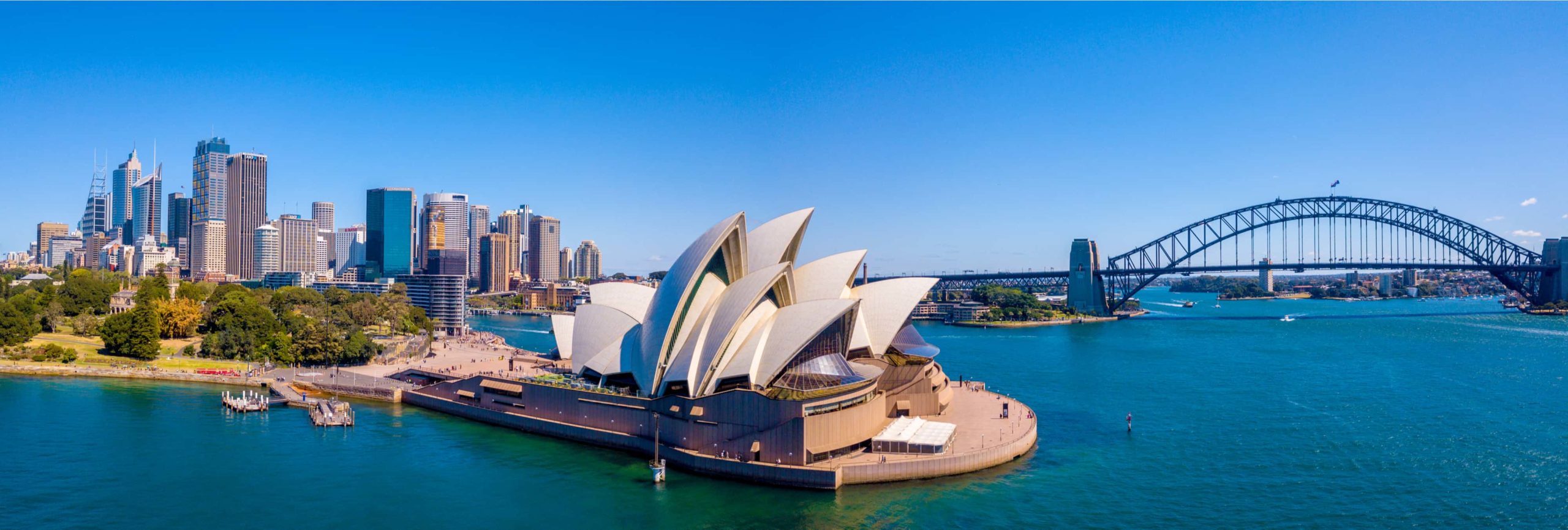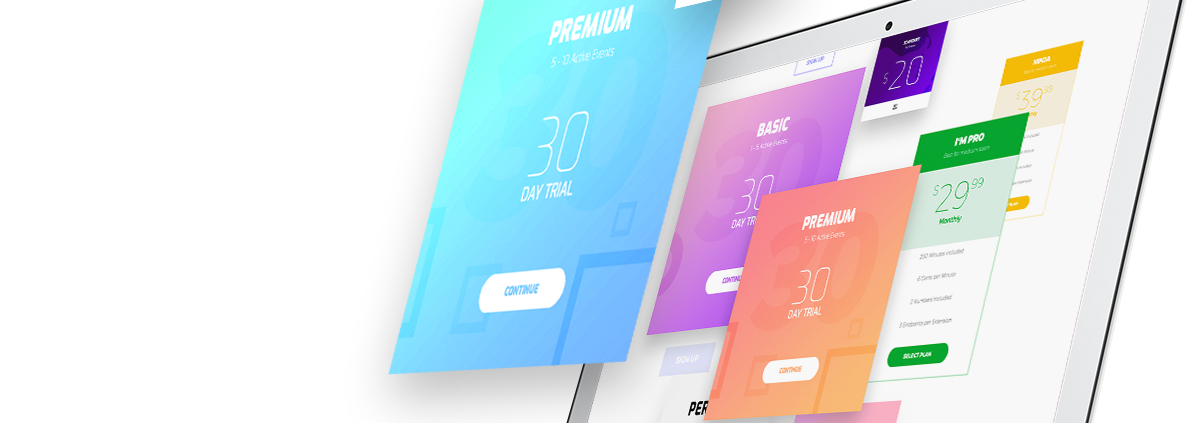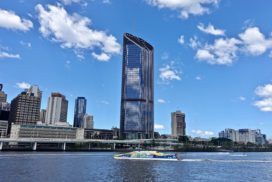Work in Australia
Work with Go To Australia
Work in Australia - Services
Get qualified
Work in Australia while you study. Or study be be able to work in Australia.
Get your work visa
We inform you about the requirements to be able to work in Australia.
Work with us
We offer work in Australia and online.
Ask our consultants
We are helping students for free to get ready to work in Australia.
Information about Working in Australia
Apply to Work in Australia
Advantages of Working in Australia
We advertise job vacancies, help students to find work and gain work experience and give information on writing applications and approved payment rates.
Employment centres at institutions advertise a range of jobs. You can also find work through newspaper advertisements, an employment agency or the government’s national employment service, Job Network.
- Nearly every international student in Australia works.
- While working part-time in Australia you can cover your living costs.
- There are no restrictions, this means any job is possible.
- Go to Australia offers free consultancy to work and study in Australia.
Links about Working in Australia
Working in Australia Students - Working on a Student Visa
Working in Australia: international students are given Student Visas to study in Australia by DIAC. Find part-time work, internship, and post-study work options to work in Australia. Working in Australia is easy and fun, especially if you are ready to give some time for it. Find out how to get useful jobs while studying in Australia.
Your education consultant will support you in understanding your work rights as international student and even help you to gain work experience in Australia.
As an International student you are allowed to work up to 20 a week and no more. This is just a package deal that comes with your student visa and being considered an international student.
However just because you are an international student doesn’t mean the Australian rules and responsibilities do not apply to you, so here is what you should know:
Working in Australia
Your student visa now allows you to work up to 20 hours a week. This qualifies as all the paid, volunteer or unpaid work you do will be added up to the 20 hours you can work.
While waiting to receive your permission here are some rules that cannot be broken:
- You cannot begin working till you have begun your classes and school has started.
- You can only work up to 20 hours a week while your are also in school, if school is out, visit the website for more information. Again it includes the work you get paid for, volunteer or unpaid word.
- During the holidays and when courses are in session, you can work unlimited hours.
- And remember your visa needs to be active and working correctly, not surpassing the expiration date.
Types of work you can get as an international students
Usually as an International student’s you can find work in retail, hospitality and administration work. Your total payment for the week depends on the job and what are the tasks you are performing. Students have also used this opportunity to tutor, where you can earn up to $40 dollars an hour, according to the Australian government guide for students, teach a language that you know or tutor on classes that people are interested in taking.
But remember school and your education should always come first. This is the extra time you have that you can take a job and earn some extra money on the side, but always try to find the balance between work and your education. You did after all come to Australia for the education.
Tax returns
How can this affect you? You should obtain a Tax File Number (TFN) from the Australian Taxation office (ATO) if you are going to work in Australia first. And You may need to open up a TFN bank account. If you visit their website you can apply and fill out the forms on the ATO website or any Australian post office can help you with further details. You need to give your full name, current address and date of birth. Your date of arrival in Australia, current overseas passport with permit, proof of enrolment, like a student card or the Confirmation of Enrolment issued by your institution. You will need to place an income tax return, through a registered tax agent or by completing it yourself, check the website for more information, like e-tax online and with in 14 days you can have all the paperwork in order and you just wait now for it to be completed. The official website where you can find more information is www.ato.gov.au or the phone them at 13 2861.
Superannuation
Here is how this work, lets say you are working in Australia as an international student, and you get paid $450 or more in a month you may be entitled to superannuation. In Australia it is required by law to pay money into your superannuation or retirement saving account due to the fact that you make more than the $450 a month. Like a saving plan, that will set away money.
Your employer will most likely talk this over with you or you with your employer to come to a deal that when the money will be pulled out to be place where and how can you get it there afterwards, you can visit www.ato.gov.au for more information.
Some people may be entitled to receive entailment when you permanently leave Australia, you can apply for the Superannuation payment on the ATO website.
Finding work as an international student
You can find job opportunities on the web like www.seek.com.au, through world wide known websites and search with key words and the regional or local newspapers also have job adds. Your institution can be of great help to help you find work too, counselors, friends, just passing along the word and leaving your resumes at business that later on might be interested in hiring you as their employee.
Applying for a job
Once you find an advertisement for a job that you want to apply for you will probably need to submit a resume, also known as a Curriculum Vitae or CV, any of which all mean resume. Your resume is to sell your skills and your knowledge, your past experience as in working and with education in details.
While it might take you a few hours’ even days if you want it perfect, to the detail with no mistake, it usually just passes through the employers hand in seconds and if nothing stands out it might just be placed down again, you want to make sure:
- You organize your resume in a logical order. Place your personal details and contact information first, then your work history (most recent to first job), education and skills. You also might like to include a section on your hobbies or interest if you feel it’s appropriate. You can add additional languages that you know, skills that you have picked up, certificates that’s worth knowing about, clubs or honors you have received if for the application is important to point it out.
- Use heading for each section so that the employer can quickly locate the information they are trying to look for like your name, address, telephone number etc.
- Make sure you provide enough details to assure that the employer has a list of the skills that you believe is important. You can go into more detail in the interview. Make sure you submit your resume by the advertised deadline, shows that you are punctual. Submit everything you were asked for and provide a cover letter, selling yourself and what you are looking for as well as a list of references of people that can provide what a well employee you will be.
- Listing references can be quite not so easy if you do not know anyone well enough in Australia but you can always explain your situation and list people that you have worked for before and various ways that person can get in touch with them, email, telephone number etc. be creative.
- If you are proving the original application, not a copy, make sure it looks clean, is not folded and is presentable. Go simple with the letter Arial, verdana, times new roman, classic is always better.
What not to include in a resume
Just review your resume and make sure that you don’t have some information that you don’t think is appropriate or that just shouldn’t be on the resume, like:
- Do not include information that really has no relevance, unless you’re going out to be a model. That would include information like your height, weight. Nor include your marital status, religion, political views, how many children you have, this should hold no importance to your employer.
- You do not have to include your age or birthday, it is not necessary.
- You do not need to place a picture of yourself; there is no need for your employer to see you before hand that is why interviews are set up.
- Do not discuss how much you like to be paid, any benefits you would like to receive on your resume, that will get discuss later on in the process.
- Don’t ever place information that is false, that is reason to not hire you. Always place information that is true and that you can back it up with proof if needed.
The interviewIf your employer calls you to set up and interview, this is a very important step, you are at the middle point already, now you just need to make sure that the interview goes with flying colors.
Prepare yourself. You look at yourself in the mirror as you practice questions that your employer might ask, such as where do you see yourself in 5 years from now? What assets do you believe you bring into this company? What makes you the ideal candid
ate for this position? Its also important that again you read the qualifications the job is desiring, make sure you can do what the position is asking for as you can back it up by demonstrating it with your employer, if they are looking for a computer programmer, is ok to say, that you have worked on computers in the past and with such computer you executed the damages in a certain way, its ok to give examples of your past work in the area you are interviewing for. Remember to stay calm, you can always expect a few nerves; but remain relax and you will perform at your best. When the interview is in process make sure you listen to the question take a minute to gather your thoughts and respond, if you do not understand the question politely ask them if they can rephrase it.
Keep in mind that the interview is your time to promote yourself and discuss your skills more in details, let them know why they should handle you, what makes you so perfect for the position, be polite and friendly to the staff, the employer to everyone you may come across.
Consider your appearance to the interview, there is no need to buy new clothing, but make sure you dress neatly and you look presentable, this is the first time they will meet you and see you, first impressions count for a lot, go for basic colors too, black and white maybe a dash of color but also no need to dress orange and yellow with purple too.
Hopefully, your interview will be a success and you will be offered the job. But if you are not, you can ask the employer for some feedback and the reasons why and next time you have improved them and you have a better chance. Not getting the job is not the end of the world, there are many more opportunities where that one came from, and maybe this one just was not the one for you.
Your rights and responsibilities in the workplace as an international employee
As a student visa holder, you are permitted to work up to 20 hours a week, that is how the rules work, while studying in Australia. Many international students find that part-time job is ideal, means you have time to study, keep on top of everything, projects, home work and gain some work experience too. But don’t think that just working 20 hours a week will be enough to rely on financially, is true Australia is not as expensive as in other locations but you always want to make sure you have more than what you need that is why to come to Australia with a good amount of money and use this money for some more basic everyday needs. That you know you can afford, like food.
You have the same legal rights as any other employee, besides the fact you can only work 20 hours a week. Make sure you know your rights, you can get more information from the workplace Ombudsman at www.workplace.gov.au on you can call 1300 363 264.
Pay
You are entitled to receive at least the basic rate of pay that applies to your job; this is how they should get divided:
- You get paid for the hours you worked.
- They must pay you on a regular basis – casual and part – time workers are often paid either weekly or every two weeks.
- The employer cannot assign you more work and tell you not to count it as worked hours.
- Your pay slip must include your employer’s information (including their Australian Business Number or ABN )the number of hours you are being paid for, the amount you have paid in income tax, your superannuation payment and how much you have been paid for this week.
- You shouldn’t have money taken out to your pay to cover anything that is the stores responsibility.
- You should be paid for ‘trial work’ and any days or time that you enter and are working for the employer.
- If you work on a public holiday, you may be entitled to be paid for the day; also you might get a higher rate of pay if you work on the weekends.
- Keep tabs on your checks and pay stubs to make sure everything is in order.
- The Australian government can provide more information.
Shifts at work
The time you spend at work, is what we call shift.
- In your shift after working more than 5 hours straight you are entitled to your break.
- You should start and finish your shift at the time that it was set out. If you work extra hours, you should first have this approved by your manager or it was because he or she asked you if you could work these extra hours and if you cannot you just let them know, or if you must leave early also make sure its approve and you do not just leave with out say.
Starting a new job
Before you start working for a new employer, it is very important that you understand exactly what your duties are, what is expected of you and how much will you be getting paid in return, no question is not important and you should have all your questions and doubts cleared up in advance. You should ask information on things like meal breaks, completing time sheets (the record where your hours are written down), what you can do if you cannot make it tow work etc. As the Australian government points out these are very important factors, you need to know what exactly your tasks are. Also the Ombudsman at www.wo.gov.au can help or by calling 1 300 363 264. For other language the translation number is 131 450.
Ending your employment and saying goodbye
If you choose to end your employment you must give the appropriate notice (that varies; depending your job) and formally inform them of your intentions to leave. You were given the opportunity to work at that place and is only fair to let them know that you are leaving. However, if your employer terminates your employment, they must do so for lawful reason. Not because of absence from work, due to illness or injury when you have a valid doctors note or any other excuse given to you that you feel is unfair, if that does occur and you need help contact the workplace ombudsman and if you were terminated is probably not best to ask for that persons reference and if you feel it was unfair and you have questions you can always ask for feedback and the reasons why.
Work permission when your course is not in session: If you are on break from your ‘official’ course and…
- you are undertaking another CRICOS registered course, you may only work 20 hours per week (Example: You decided to do summer school because the points will be credited to your degree), however your ‘official’ course is seen to be in session => you you are only allowed to work up to 20 hours per week.
- you are undertaking another CRICOS registered course, however the points will not be credited to your degree (Example: You are doing an English course over the summer) => you are allowed to work unrestricted until your course commences again, so obviously you are not seen to be studying towards the course for which you have your visa => you are allowed to work unrestricted until your course commences again.
- you are doing a short course that is not CRICOS registered (Example: You are doing a pottery or yoga course), you are not seen to be formally studying towards the course for which you have your visa => you are allowed to work unrestricted until your formal course commences again
Student Visa holders can work up to 24 hours / week.
There are certain conditions which must be met for a student to work their 20 hours in Australia. Students can not commence work until they have started their course. It only allows 20 hours of work a week, but full time during holidays.
Type of work for international students
As students can only work part time or casual hours most of the work available is in shops, retail and hospitality as the hours are flexible. Generally the pay is not high and it will depend on age and experience. Many students decide to work as a tutor for students learning their native language. Tutoring work tends to pay higher how ever job opportunities are not high.
Tax Returns
Students will need to apply for a Tax File Number through the Australian Taxation Office before commencing any paid employment. Tax will be taken out of any pay earned and can be claimed back at the end of each financial year along with any other work related expenses. Each financial year Tax File Number holders must complete and lodge a Tax Return, this states what money has been earned and from where as well as how much either the tax office owes the tax payer or how much the tax payer owes the tax office.
Any tax owed to the payee will be paid within 14 days unless there is a problem which needs to be resolved, in this case the tax office will contact the person involved.
Superannuation
Any one who is paid $450 a month is eligible for superannuation, this is where a percentage of paid tax goes into a superannuation account which is applied for as an individual or through the place of work. Superannuation is a retirement fund, any money placed in this account can not be withdrawn unless in the case of an emergency or retirement.
There are many superannuation providers in Australia to choose from.
Finding Work
There are many ways to look for a job, alot of students hand out resumes directly to employment options. If looking for advertisements local newspapers, and web sites advertise available jobs regularly. Websites such as www.seek.com.au and www.careerone.com.au allow job applicants to apply for positions directly through their website.
Always when applying for a job ensure that the resume and cover letter are truthful and made out with good English. In the resume include all the applicants contact details, name, educational history, employment history as well as several references which can be contacted by phone. Both a covering letter, resume and any copies of qualifications should be sent to the advertiser.
Do not include in the resume, details such as height, weight, marital status or religion. A photo of ones self is not necessary, and never state how much the applicant is wanting to be paid.
If an advertiser is interested in an applicant they will call and ask for an interview, this will generally be at the place of work so the applicant can see where they would be working and what they would be doing first hand. Always dress appropriately and be prepared, the interview is when the potential employer will decide whether or not the applicant would work well with their team. If English is the applicants second language, make sure to listen carefully and be overly prepared.
Usually after an interview the advertiser will let them no whether or not they have been successful, at times they may ask them back for a second interview or say they will call them and let them no whether they have been successful.
Your rights and responsibilities in the work place
The main responsibility for student visa holders is to make sure they do not work more then 20 hours a week, they must make sure their employer understands this as there are penalties for working more then the aloud amount.
Pay
Always check that the student is being paid a minimum of award wage. Pay must be made on a regular basis meaning fortnightly or monthly at the most. Ensure money is paid into a bank account and not in cash. After the pay period be sure the employer has provided a pay slip which has on it all the employers details, pay amount, tax and superannuation details stated on it. The pay slips will help when lodging a tax return at a later date.
Shifts
An employer will let the employee no of what shifts they are to work, it is the employee’s responsibility to turn up on time and work the desired shift. Let the employer no at the interview time what shifts they can and can not work due to study commitments.
Ending your employment
Ending employment is simple enough but the employee must provide enough notice, both parties must give at least 2 to 3 weeks notice when choosing to end employment.
Employers are not aloud to end employment on grounds of race, gender, disability, religion or ethnicity. If an employer does this there are rights to contact the Workplace Ombudsman to discuss rights and further action.
Why study and work in Australia?
There are many reasons for international students to study abroad in Australia. Australia has so much to offer! Many international students study abroad in Australia to combine a top quality education with the famous Australian lifestyle which leaves a lasting impression and a one-in-a-lifetime experience.
You must apply for a student visa in order to work and study abroad in Australia. We can send you all necessary information.
Below are some general requirements you have to fulfill in order to study and work in Australia:
- You must demonstrate ability to meet the financial capacity
- You must show a satisfactory knowledge of English
- You must possess a good character and healthy condition
- You mustn’t have outstanding debts to the Commonwealth of Australia
- You must have an Overseas Student Health Cover (OSHC) that is accepted
- You must genuinely show intentions to comply with visa conditions.
Receive free Student Services & Student Discounts
A Student Visa allows you to work in Australia, however there are conditions:
- You can only work after you have started your course.
- You can work up 20 hours a week, this includes volunteer work as well as paid work. However if you are doing work experience or if it related to your course, it does not count
You can work as many hours as you want when you are on holiday or when you are not doing your course
Tax returns
If you are working you should obtain a Tax File Number (TFN) from the Australian Taxation Office (ATO). You may also need a TFN to get a bank account. To apply,a print out a form at the ATO website or fill in one at an Australia Post office. You will need to give your name, current address and date of birth. You may also need
to supply your arrival date, current overseas passport (with current entry permit), and proof of enrolment, which would be a student card or the Confirmation of Enrolment issued by your institution. If you are going to work in Australia you will have to lodge a tax return either yourself or by a tax agent. If you complete one yourself e-tax is the most efficient way to get a refund. Usually up to 14 days. You can download e-tax from the ATO website.














